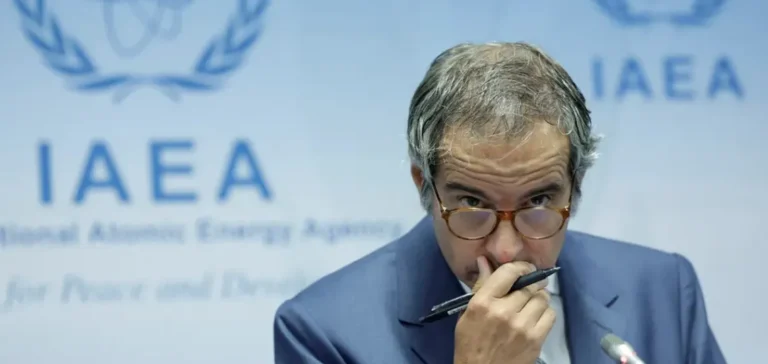The International Atomic Energy Agency (IAEA) is sending a deputy director general to Tehran on Monday for negotiations on nuclear cooperation, according to statements by Iranian Foreign Minister Abbas Araghchi. This visit comes two months after Iran suspended its collaboration with the United Nations nuclear watchdog organization. The discussions will focus exclusively on establishing a new cooperation framework, with no plans for inspections of nuclear facilities damaged during Israeli and American strikes last June. The technical delegation will include no inspectors, marking a strictly diplomatic approach to this resumption of contact.
Persistent Tensions After June Bombings
Relations between Tehran and the IAEA have deteriorated considerably following military attacks on Iranian nuclear sites at Natanz, Fordow and Isfahan. Iran accuses the agency of facilitating these strikes by publishing a critical report on May 31, which led the IAEA Board of Governors to declare Iran in violation of its non-proliferation obligations. President Masoud Pezeshkian formally promulgated a law in early July suspending cooperation with the IAEA, conditioning any future inspection on approval from Iran’s Supreme National Security Council. This decision has significantly limited the agency’s ability to monitor Iran’s nuclear program, particularly stocks of uranium enriched to 60%, a level well above the limits set by the 2015 agreement but below the 90% threshold needed for a nuclear weapon.
Iranian officials maintain that this visit represents a routine technical meeting, similar to more than ten previous meetings held in Tehran and Vienna. No major decision is expected from these discussions, which will focus on technical modalities for a possible resumption of cooperation. Iran continues to demand guarantees for the security of its facilities and nuclear scientists as a prerequisite for any normalization of relations with the IAEA.
International Pressure and Diplomatic Prospects
Rafael Grossi, IAEA Director General, stated that Iran had expressed willingness to resume certain technical consultations, while insisting on the rapid return of inspectors to Iranian nuclear facilities. The agency estimates it holds about 274.8 kilograms of uranium enriched up to 60%, according to its latest report. The United States has called Iran’s suspension of cooperation with the IAEA unacceptable, while France, Germany and the United Kingdom have threatened to activate the “snapback” mechanism to reinstate UN sanctions by the end of August if no agreement is reached.
Parallel negotiations between Iran and the United States have remained at a standstill since June’s events, with Tehran demanding guarantees against any military action before resuming discussions. Minister Araghchi confirmed receiving American messages regarding a possible resumption of talks, though no date has been set. The snapback option, which expires in October, represents a critical deadline for multilateral negotiations on Iran’s nuclear program.
This first post-conflict visit by an IAEA official to Tehran could determine the future trajectory of the Iranian nuclear dossier. Energy markets are closely monitoring these developments, aware that any escalation could affect regional oil supplies and global energy prices. Iran’s ability to maintain its oil production despite tensions remains a stabilizing factor for markets, as sector players assess the geopolitical risks associated with a potential definitive breakdown of nuclear dialogue.






















